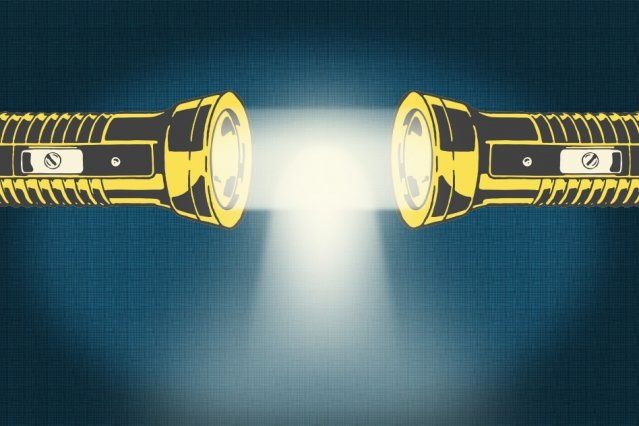
For the first time, scientists have watched groups of three photons interacting and effectively producing a new form of light.
In results published in Science, researchers suggest that this new light could be used to perform highly complex, incredibly fast quantum computations.
Photons are tiny particles that normally travel solo through beams of light, never interacting with each other. But in 2013 scientists made them clump together in pairs, creating a new state of matter. This discovery shows that interactions are possible on a greater scale.
"It was an open question," Vladan Vuletic from the Massachusetts Institute of Technology (MIT), who led the team with Mikhail Lukin from Harvard University, said in a statement. "Can you add more photons to a molecule to make bigger and bigger things?"
Read more: Physics: Speed of light could be brought to a complete stop by trapping particles inside crystals
The scientists cooled a cloud of rubidium atoms to an ultralow temperature to answer their question. This slowed the atoms down till they were almost still. A very faint laser beam sent just a few photons through the freezing cloud at once.
The photons came out the other side as pairs and triplets, rather than just as individuals.
Photons flit between atoms like bees among flowers

The researchers think the particles might flit from one nearby atom to another as they pass through the rubidium cloud—like bees in a field of flowers. These passing photons could form "polaritons"—part photon, part atom hybrids. If more than one photon passes by the same atom at the same time, they might form polaritons that are linked. As they leave the atom, they could stay together as a pair, or even a triplet.
"What's neat about this is, when photons go through the medium, anything that happens in the medium, they 'remember' when they get out," said co-author Sergio Cantu from MIT.
This whole process takes about a millionth of a second.
The future of computing
This research is the latest step toward a long-fabled quantum computer, an ultra-powerful machine that could solve problems beyond the realm of traditional computers. Your desktop PC would, for example, struggle to solve the question: "If a salesman has lots of places to visit, what is the quickest route?"
"[A traditional computer] could solve this for a certain number of cities, but if I wanted to add more cities, it would get much harder, very quickly," Vuletic previously stated in a press release.
Read more: What did the Big Bang look like? The physics of light during the formation of the universe
Light, he said, is already used to transmit data very quickly over long distances via fiber optic cables. Being able to manipulate these photons could enable the distribution of data in much more powerful ways.
The team is now aiming to coerce photons in ways beyond attraction. The next stop is repulsion, where photons slam into each other and scatter.
"It's completely novel in the sense that we don't even know sometimes qualitatively what to expect," Vuletic says. "With repulsion of photons, can they be such that they form a regular pattern, like a crystal of light? Or will something else happen? It's very uncharted territory."
Uncommon Knowledge
Newsweek is committed to challenging conventional wisdom and finding connections in the search for common ground.
Newsweek is committed to challenging conventional wisdom and finding connections in the search for common ground.
About the writer
Katherine Hignett is a reporter based in London. She currently covers current affairs, health and science. Prior to joining Newsweek ... Read more





